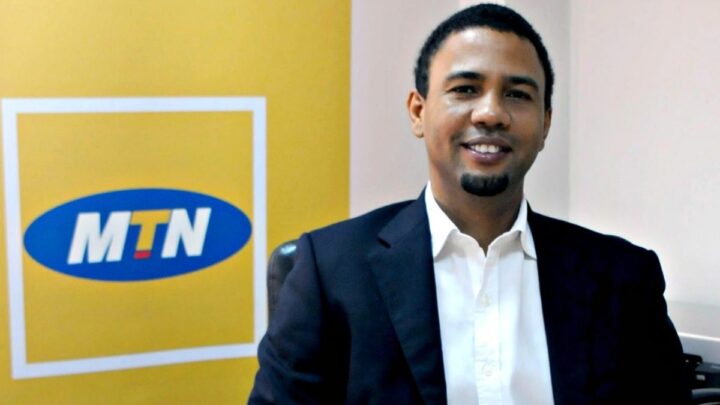
LAGOS – MTN Nigeria has stressed the urgent need for the telecommunications sector to return to profitability to sustain its operations in the country, with the country’s largest telecom operator’s CEO saying the sector has been accumulating significant losses.
CEO Karl Toriola said on Monday during a tour of MTN’s facilities by Fellows of the Media Innovation Programme in Ibeju-Lekki, Lagos that immediate action was necessary to reverse this trend.
The operator with a corporate social investment of ₦2.6bn, according to its 2023 Sustainability Report, is now surviving on the profits it accumulated in about two decades.
“We must return the industry to profitability,” Toriola stated, emphasising the necessity for reform.
He further elaborated that the company is currently operating on its reserves, which he described as unsustainable in the long run.
Earlier this year, telecom operators renewed calls for a tariff hike—the first increase in 11 years—to address rising operational costs and improve service quality. Without such adjustments, they argued, financial viability and service standards will continue to decline.
Toriola reiterated that the sector faces critical pressures from rising operational costs, including escalating diesel prices required to power base transceiver stations.
“There should be no delusion; if the tariff doesn’t go up, we will shut down,” he warned, and underscored the urgent need for tariff adjustments to reflect economic realities.
According to Toriola, MTN, once one of Nigeria’s top corporate taxpayers, has seen its tax contributions decline as a result of these financial challenges.
Reflecting on their first-quarter results, MTN and Airtel have adopted a cautious approach to capital expenditure for 2024.
Meanwhile, the two other mobile operators in the country, 9mobile and Globacom, are not publicly listed.
In 2024, MTN Nigeria reported a staggering ₦519.1bn loss in the first half of the year, primarily due to foreign exchange losses stemming from the naira’s devaluation and high inflation rates.
Toriola also warned that it may suspend Unstructured Supplementary Service Data banking services due to the ₦250bn debt owed by Nigerian banks.
The mobile network operator is seeking regulatory approval to halt support for USSD services used for banking transactions unless the debt is resolved and tariffs are adjusted to reflect the economic realities.
The MTN Nigeria CEO, however, expressed optimism that Central Bank of Nigeria’s Governor, Yemi Cardoso, and the Executive Vice Chairman of the Nigerian Communications Commission, Dr. Aminu Maida, would intervene to help resolve the ongoing financial crisis.
He stressed the critical role the telecom industry plays in supporting Nigeria’s economy, urging the government and regulators to act quickly to prevent the dire consequences of inaction.
In August, Toriola warned that telecom operators in the country were in state of intensive care.
In its financial results for the period ending June 2024, MTN Nigeria Communications Plc had reported a loss after tax of $519.1 billion for the first half of 2024, due to record-high inflation and a weaker naira.
Nigeria economy crisis
Nigeria’s headline inflation rate in September 2024 rose to 32.70%, up from 32.15% in August 2024, marking a 0.55% increase month-on-month, according to the National Bureau of Statistics (NBS).
The country is facing its worst economic crisis in decades, with skyrocketing inflation, the national currency in free-fall and millions of people struggling to buy food. Only two years ago Africa’s biggest economy, Nigeria is projected to drop to fourth place this year.
The pain is widespread. Unions strike to protest salaries of around $20 a month. People die in stampedes, desperate for free sacks of rice. Hospitals are overrun with women wracked by spasms from calcium deficiencies.
Although President Bola Tinubu increased the minimum wage — after strike action and months-long negotiations with labour unions — from ₦30,000 to ₦70,000, his government has increased spending for officials at a time of nationwide starvation.
For workers earning the new ₦70,000, or $43 per month minimum wage, capricious inflation and naira value have inflicted too much damage for the changes to make any difference in their lives.
The crisis is largely believed to be rooted in two major changes implemented by Tinubu, who took over office 17 months ago; the partial removal of fuel subsidies and the floating of the currency, which together have caused major price rises.
Over a year after Tinubu declared end to fuel subsidy, the fuel price which had been hiked a few times during his first year in office, officially hit the ₦1,000 mark in early October, as oil marketers including state-run Nigerian National Petroleum Corporation (NNPC) Limited, adjusted their pumps in Abuja to ₦1,030 per litre and those in Lagos State did to ₦998, compounding the woes of the citizens who power their vehicles, and generating sets with petrol, no thanks to decades-long epileptic electricity supply.
This follows after the NNPC Limited withdrew from being middleman between the oil marketers and the Aliko Dangote-owned refinery for the supply of fuel.
Dangote had also urged the president to fully hand off fuel subsidy.
In recent weeks, the nation has suffered an acute fuel scarcity that led some outlets with fuel to sell at exorbitant prices above ₦1,100 per litre while black market prices exceeded ₦1,300.
A nation of entrepreneurs, Nigeria’s more than 200 million citizens are skilled at managing in tough circumstances, without the services states usually provide. They generate their own electricity and source their own water. They take up arms and defend their communities when the armed forces cannot. They negotiate with armed kidnappers when family members are abducted.
But right now, their resourcefulness is being stretched to the limit.
In August, Amnesty International accused Nigerian security forces of killing at least 21 protesters during a week of economic hardship protests.
Police and other security agencies clamped down on protests after thousands of people joined rallies against government policies and the high cost of living from August 1st to 10th.
Security forces denied responsibility for deaths during the protests.
($1 = ₦1,643.34)
